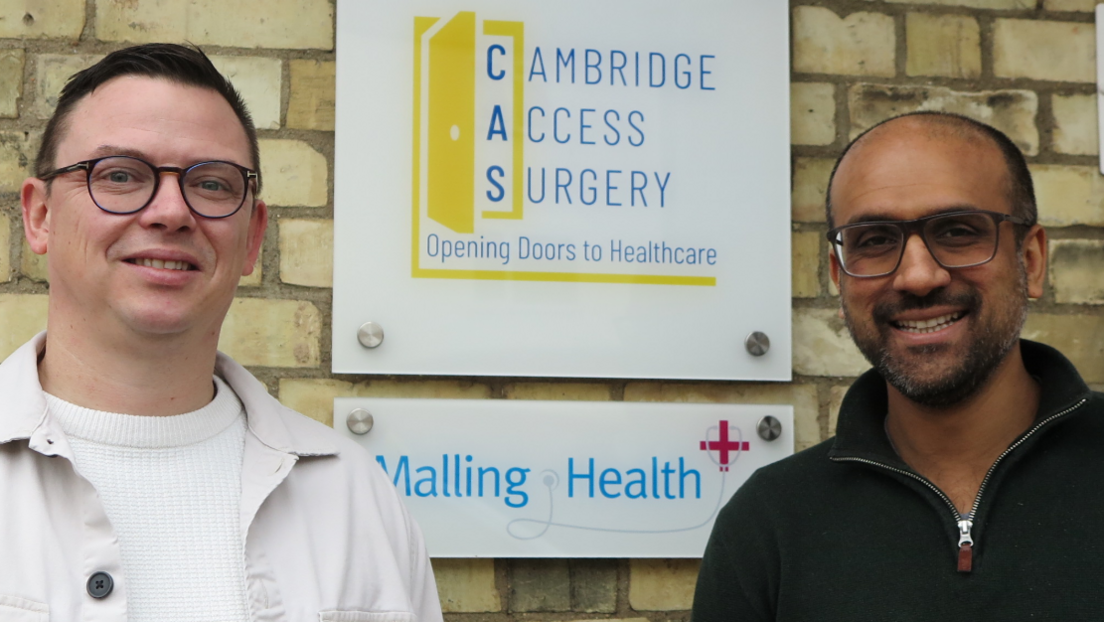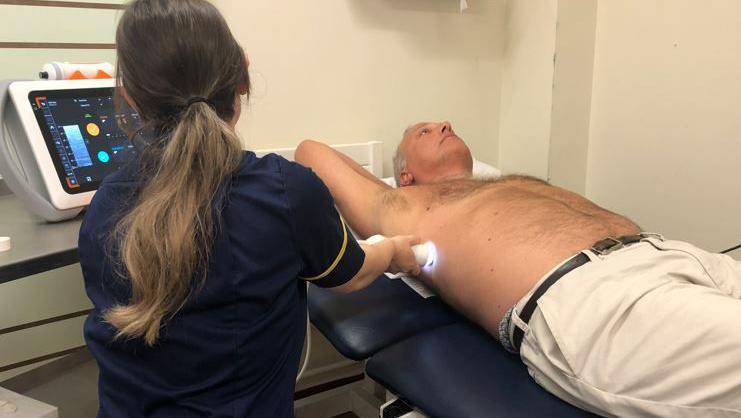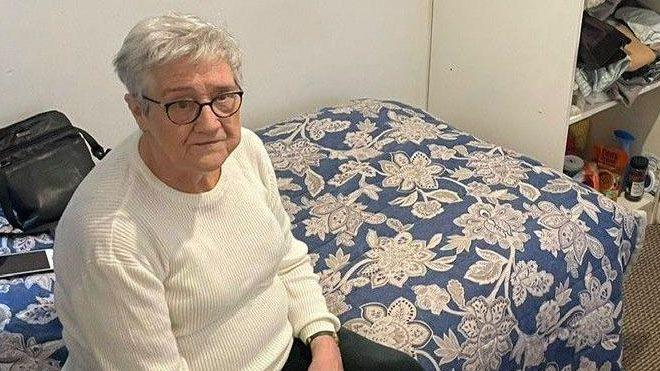Project aiming to tackle cancer in homeless people

Prof Lee Smith and Dr Damita Abayaratne hope the project will help homeless people overcome barriers to accessing healthcare
- Published
Homeless people could receive vital healthcare as part of new project aimed at tackling cancer in the East of England.
A two-year scheme in Cambridge, Peterborough, Wisbech and King's Lynn in Norfolk, will see "health navigators" work in health centres and homelessness services.
The project, led by the East of England Cancer Alliance, will work with Anglia Ruskin University (ARU) and aims to eliminate the differences homeless people experience when trying to access basic healthcare.
Prof Peter Johnson, NHS clinical director for cancer, said: "Homeless people who develop cancer face particular challenges in getting help, meaning the early symptoms may not be picked up and their cancer is much harder to treat by the time it is detected."
The health navigators perform basic health checks and work with the homeless people to identify their needs.
They can accompany homeless people to appointments, stay engaged with their treatment plans and organise workshops to promote health awareness.
The scheme is based on a pilot project, Cancerless, led by Lee Smith, Professor of Public Health at ARU.
It puts particular focus on raising awareness of symptoms linked to cancer, especially the early detection of liver cancer.
Prof Smith said: "This new initiative is focusing on liver disease and this is so important as the cancerless project identified a high prevalence of behaviours that put people at risk of cancer and multiple other chronic conditions."
Prof Peter Hoskin, consultant oncologist and clinical director at the East of England Cancer Alliance, added many liver cancers were only diagnosed when homeless people arrived in emergency departments.
He said: "This new initiative, involving health navigators who are known and trusted by people facing homelessness in our region, is an important and effective way to address an urgent problem."
Dr Damita Abayaratne, a GP who is co-ordinating the work from the Cambridge Access Surgery said: "This is a direct way to address what we know is a significant health inequality across the country.
"We will be charting its progress and hope it may inform models of care in other areas."
Get in touch
Do you have a story suggestion for the East of England?
Follow East of England news on X, external, Instagram, external and Facebook: BBC Beds, Herts & Bucks, external, BBC Cambridgeshire, external, BBC Essex, external, BBC Norfolk, external, BBC Northamptonshire, external or BBC Suffolk, external.
Related topics
More like this story
- Published13 November 2024

- Published30 October 2024

- Published17 December 2024
